This Game Is Not What I Expected
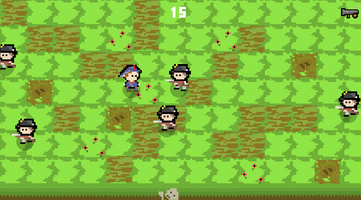
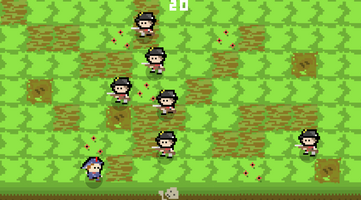
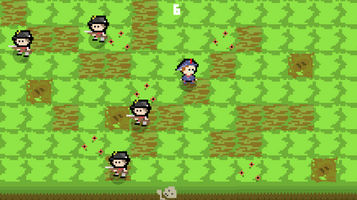
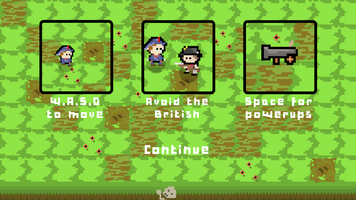
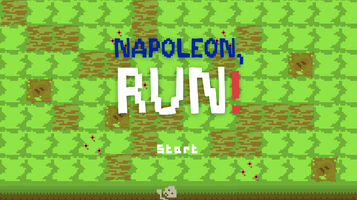
When I decided I wanted to develop games, Napoleon, Run! was not my first idea. Like many of us indie game devs, I set my sights higher–too high. Ever the pragmatist, I quickly realised that I needed to reign in my expectations for my first game.
Well, technically, it’s not my first game. When I was about fifteen, I created a platformer in Game Maker 8 called The Line of Solitude which I released on Gamejolt. Funnily enough, I recently found a video review of the game on YouTube. Some of the game mechanics are kind of broken, but it did help me to learn the fundamentals of game development–it was just something I never continued (until now, at the ripe old age of twenty-four).
Anyway, enough about me–we’re here to talk about Napoleon, Run!. The smaller scope of the game is not why it’s not what I expected. My initial idea for the game was that it would be a mobile game. Yet, try as I might, I simply cannot get it to work on Android. Why? Because of the development language I chose: Pygame.
Why I Chose Pygame
You’re probably wondering (or not), Jimbo, why didn’t you just choose a language native to Android like Java? Well, Python is the language that I’m most familiar with (I studied it in school and achieved an A grade), so my knee-jerk reaction was to reach for the Python IDE (and Pygame), which I did. Besides, my research indicated that you could port Pygame builds to Android, but it just won’t happen.
This was not something I wanted to get bogged down by, otherwise I’d never have finished the game–I’d be stuck in tutorial hell, trying desperately to compile an APK. So, I moved on; I adapted and updated the control scheme to work with PC.
Fortunately, Pygame perfectly serves the games I plan to make. I’m not interested in creating stunning, expansive games. In fact, I’m not interested in making 3D games at all, though I do plan to use raycasting in the near future (but that’s not true 3D).
What Tools Did I Use?
Initially, I stuck with Python IDE. This worked for a while, but as the game grew, its lack of management features made it awkward. So, I switched over to Replit, which allows me to work on my codebase across devices, seamlessly deploy code to Git, and better keep track of what I’m doing. (It also has a nifty AI feature to help modify code and explain snippets when you get stuck.)
For graphics, I used Pixel Art Studio Free, available on the Microsoft Store. For a free tool, Pixel Art Studio is amazing. It handles everything I need, from animations to image scaling. If you’re interested in pixel art, I would recommend Pixel Art Studio in a heartbeat.
Then for sound design, I used SoundTrap which also has a free version (though I did use my free pro trial so I could use an accordion sound). SoundTrap is an excellent alternative to Logic Pro if you’re running Windows, but it’s not a replacement. If I still had a MacBook, I’d have gone straight for Logic.
What Next for Napoleon, Run!?
At the time of writing this, Napoleon, Run! is set to “in development” on Itch. It’s almost finished. In fact, all main gameplay features are complete, I just need to make a few adjustments to the control scheme and player physics. Then there are a few user experience issues I need to attend to which shouldn’t take long. If you’re interested in playing Napoleon, Run!, expect it to be available at some point next week.
Get Napoleon, Run!
Napoleon, Run!
Endless Survival
| Status | Released |
| Author | Jimbo's Lab |
| Genre | Survival |
| Tags | Casual, Endless, Endless Runner, Historical |
More posts
- Minor Update45 days ago
- Napoleon, Run! -- OUT NOW | Game Overview47 days ago
Leave a comment
Log in with itch.io to leave a comment.